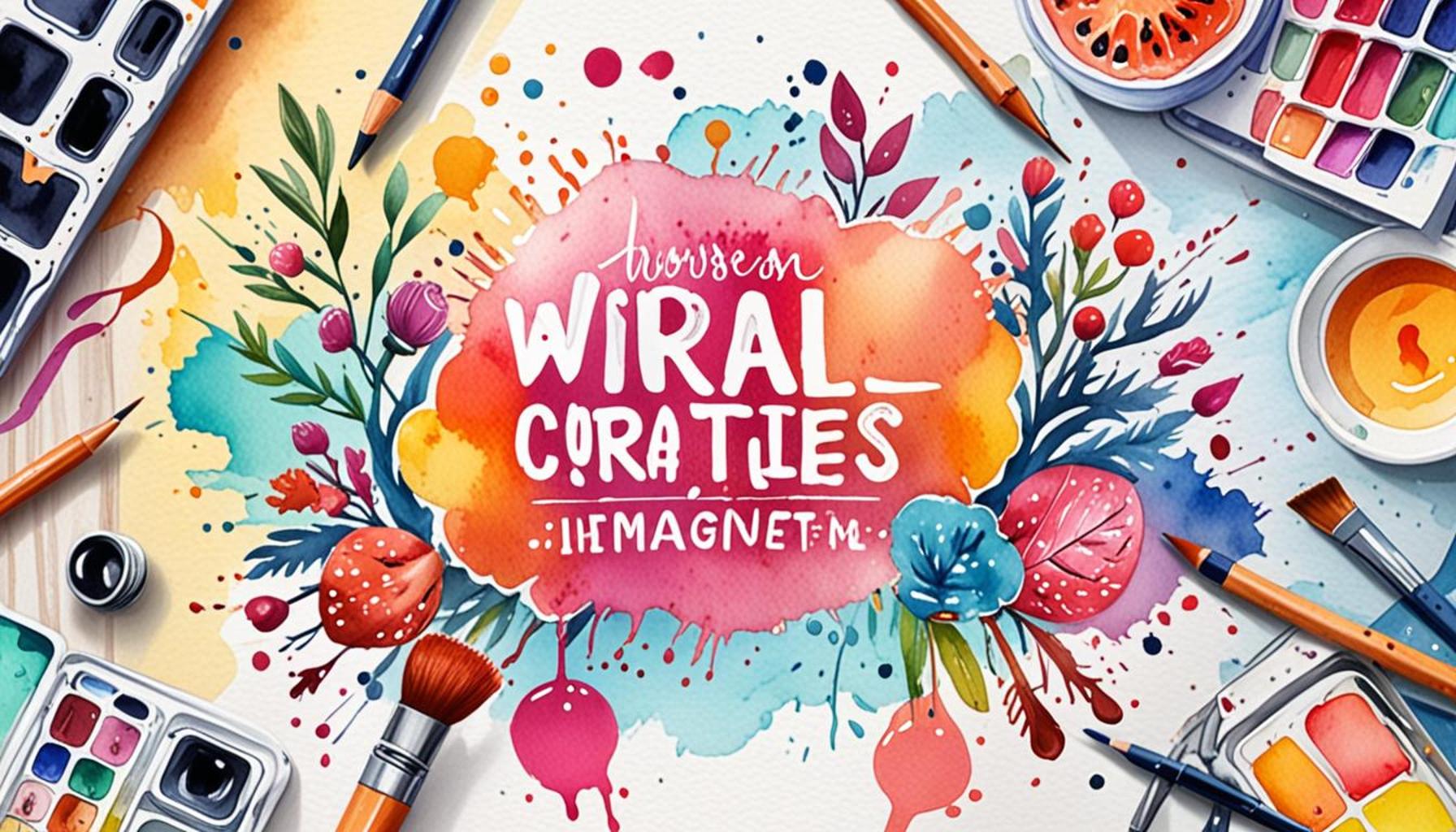The Importance of Authenticity on Social Media for Modern Brands

The Importance of Authenticity in Branding
In a digital landscape saturated with content, authentic voices shine the brightest. Brands that truly embrace authenticity are not merely seeking to sell a product; they are fostering a profound trust that transcends the typical brand-consumer relationship. In an era where consumers are bombarded with advertisements and polished marketing strategies, the call for genuine communication has become a powerful mantra. Authenticity now serves as a key differentiator in today’s hyper-competitive market, where businesses strive for more than just sales—they aim for a lasting connection with their audience.
Transparency
Consumers today are increasingly demanding honesty from brands. They are skeptical of overly polished messages that seem disconnected from reality. This desire for transparency is evident in the way brands present their operations, sourcing, and corporate social responsibility efforts. For example, brands like Patagonia have successfully positioned themselves by openly discussing their eco-friendly initiatives, including the use of sustainable materials in their products. This open dialogue fosters loyalty among consumers who share similar values and are increasingly making purchasing decisions based on a brand’s ethical practices.
Relatability
Consumers are also drawn to brands that share real-life stories and embody relatable values. Brands that humanize themselves through storytelling create an emotional connection that resonates with their audience. Consider Dove’s “Real Beauty” campaign, which showcased women of various shapes, sizes, and backgrounds, challenging conventional beauty standards. By sharing the authentic and diverse narratives of real women, Dove reinforced its commitment to inclusivity and empowered consumers to feel a deeper connection with the brand.
Community Engagement
Authenticity extends beyond messaging into community engagement. Brands that invite open dialogue and feedback cultivate a more inclusive space where consumers feel valued. For instance, Starbucks have implemented community engagement strategies through programs that encourage customer feedback on new products. This not only fosters brand loyalty but also makes customers feel they have a stake in the brand’s evolution.
As social media continues to dominate, consumers are scrolling through endless feeds, seeking brands that resonate with their beliefs and uphold their values. The rise of user-generated content illustrates how brands can effectively leverage their customers’ voices for greater impact. Platforms like Instagram and TikTok provide opportunities for users to express their interactions with brands creatively. This shift underscores the importance of authenticity as users increasingly share their genuine experiences with products and services.
Statistics Highlighting the Impact of Authenticity
The significance of authenticity in branding is reinforced by compelling statistics:
- 86% of consumers believe that authenticity is key when deciding what brands to support.
- 70% of millennials are more loyal to brands that present themselves as genuine and transparent.
As the connection between brands and their audience deepens, understanding the role of authenticity on social media becomes essential. This growing alignment between consumer expectations and brand messaging will shape marketing strategies in the years to come. In the following sections, we will explore how brands can cultivate an authentic presence, the benefits of doing so, and real-life examples of companies leading the way in this vital area.
SEE ALSO: Click here to read another article
Building an Authentic Social Media Presence
In the realm of social media, the essence of authenticity has evolved from a mere marketing buzzword to a fundamental pillar for modern brands. As audiences become increasingly interconnected and discerning, the ability to present a genuine image has never been more crucial. Brands that prioritize authenticity in their social media strategies not only distinguish themselves from competitors but also pave the way for lasting relationships with their consumer base.
The Role of Authentic Content
Content is the heartbeat of any social media strategy, and when it comes to authenticity, the approach to content creation matters immensely. Brands that generate authentic content—that is, real and relatable images, videos, and stories—tend to captivate their target audience more effectively than those that rely on traditional advertising models. In fact, research shows that 64% of consumers cite shared values as the primary reason for brand loyalty. This statistic underscores the importance of developing content that not only promotes products but also aligns with the interests and values of the audience.
Moreover, brands like Nike have made significant strides in representing their values through impactful storytelling. By centering on social issues and real-life athletes’ experiences, Nike successfully connects with a broad audience while reinforcing its brand message of empowerment and resilience.
Engagement Through Authentic Interaction
Social media is inherently a platform for interaction, and brands that engage with their followers in a genuine manner create a sense of community. Crafting responses to comments, hosting Q&A sessions, and even acknowledging mistakes openly can enhance the perception of a brand as relatable and trustworthy. For instance, when Wendy’s infamously “roasted” competitors through humorous posts on Twitter, they cultivated a large following as consumers appreciated the brand’s wit and authenticity. By fostering this type of engagement, brands are not merely broadcasting messages; they are creating dialogues and building trust.
The Impact of Influencers on Authenticity
Another pivotal component of authenticity on social media is the role of influencers. Partnerships with influencers who genuinely believe in a brand’s mission can amplify authenticity in a way that traditional advertising cannot. Influencers often have loyal audiences who value their opinions, so when they endorse a product or service authentically, the message resonates more effectively. However, the choice of influencer is critical; a misalignment between a brand and its chosen influencer can lead to backlash and diminish the brand’s perceived authenticity.
Key Takeaways for Brands
For brands aiming to thrive on social media, there are crucial steps to cultivating an authentic presence:
- Develop relatable content that reflects consumer interests and values.
- Engage with followers in an open and humanized manner.
- Choose influencers who align with the brand’s mission and beliefs.
In a marketplace where authenticity holds significant sway, brands that recognize and adapt to these dynamics will not only survive; they will thrive. As we delve deeper into the practical applications of authenticity on social media, we will explore how brands can leverage this core principle to forge stronger connections with their audience and differentiate themselves in an ever-evolving landscape.
| Advantage | Description |
|---|---|
| Increased Trust | When brands showcase their genuine story, customers feel more connected and are more likely to trust their intentions. |
| Stronger Engagement | Authentic content resonates more, leading to higher interaction rates on social media platforms. |
In today’s fast-paced digital environment, authenticity has emerged as a cornerstone for brands looking to differentiate themselves. The shift towards genuine interaction over manufactured content is particularly important as consumers are increasingly savvy and critical of brand messaging. Research indicates that over 86% of consumers value transparency in brand communications, which translates to loyalty and long-term relationships when brands demonstrate authentic practices. Brands can propel their presence on social media by sharing stories that reflect their true values, missions, and challenges. This openness often results in a community of advocates who are not just customers, but brand enthusiasts.Moreover, the rise of user-generated content further emphasizes the trend towards authenticity. By encouraging customers to share their experiences, brands tap into a wealth of genuine testimonials that can amplify their message and foster a sense of belonging and trust among their audience. Brands that embrace and promote this authenticity can expect not only greater engagement but also an upward trajectory in their overall brand sentiment.
RECOMMENDED: Check out this similar article
Transforming Brand Perception Through Transparency
In an age where consumers are increasingly concerned with corporate ethics, the concept of transparency stands out as a critical facet of authenticity in social media. Today’s consumers seek brands that are not only open about their product sourcing, manufacturing processes, and business practices, but also willing to share behind-the-scenes glimpses into their daily operations. This transparency builds trust and fosters an emotional connection, as consumers can see beyond marketing pitches to the real values that underpin a brand.
For example, beauty brand Glossier has gained a loyal following due in large part to its commitment to transparency. The company often shares customer feedback alongside its product stories, showcasing both praise and constructive criticism. This not only highlights the brand’s confidence in its offerings but also portrays a commitment to listening to its community. Such practices signal to consumers that the brand values their opinions and is driven by a genuine desire to improve.
The Power of User-Generated Content
The role of user-generated content (UGC) in enhancing authenticity cannot be overstated. When brands encourage customers to share their experiences with products on social media, they tap into a wellspring of organic promotion that feels more genuine than any polished advertisement. UGC is often perceived as more trustworthy because it comes from real customers rather than the brand itself. According to a recent study, UGC can increase engagement rates by up to 28%, making it a powerful tool for brands eager to build an authentic presence.
Consider the case of Starbucks, which regularly promotes customer-created photos of its beverages and food items. By sharing these authentic experiences on their own social media platforms, Starbucks reinforces its brand identity and establishes a sense of community among its patrons. This creates an environment where consumers feel valued and encourages them to further engage with the brand.
Responding to Criticism with Authenticity
Another key aspect of authenticity is how brands handle criticism on social media. Instead of ignoring negative feedback or deleting unfavorable comments, brands that tackle criticism head-on often emerge appearing more credible and reliable. When a crisis arises, transparency paired with a respectful response can soften the blow. Customers appreciate a brand that acknowledges challenges; it showcases humility and fosters loyalty.
A notable example is when fashion retailer ZARA faced backlash for an insensitive ad campaign. Rather than remaining silent, the company issued a sincere apology and communicated its commitment to learn from the situation. This approach impressed consumers, demonstrating that ZARA values accountability and is willing to adapt.
How Brands Can Measure Authenticity
To gauge the effectiveness of their authenticity efforts, brands can utilize a variety of metrics. Key performance indicators (KPIs) such as brand sentiment analysis, engagement rates, and follower growth can reveal the impact of authentic interactions on a brand’s reputation. Tools like social listening can also provide qualitative insights into how audiences perceive a brand’s authenticity over time.
Moreover, seeking feedback directly from consumers through surveys or polls can deliver invaluable information about how well a brand is delivering on its promise of authenticity. Many brands have turned to platforms like Instagram Stories and Facebook polls to solicit real-time opinions, enabling them to adapt swiftly and maintain a strong rapport with their audience.
The convergence of transparency, UGC, proactive handling of criticism, and data-driven assessments creates a multi-faceted approach to authenticity. As consumers increasingly seek genuine connections with their favorite brands, those that embrace these strategies will not only resonate more deeply with their audience but also enhance their overall brand loyalty in an intensely competitive marketplace.
ADDITIONAL INSIGHTS: Expand your understanding here
Conclusion: Embracing Authenticity for Long-Term Success
In today’s rapidly evolving digital landscape, authenticity has emerged as a fundamental principle for modern brands operating on social media. As consumers grow increasingly discerning and demanding, the importance of transparent practices, user-generated content, and proactive engagement in addressing criticism becomes undeniable. Brands that prioritize these elements are not merely ticking a box; they are crafting narratives that resonate on a deeper emotional level with their audiences.
The adoption of authentic strategies, such as sharing real customer experiences and employing transparent communication, strengthens brand integrity and fosters long-lasting relationships with consumers. As demonstrated by brands like Glossier and Starbucks, building a community around shared values and encouraging open dialogue can differentiate a brand from its competitors while cultivating loyalty. Moreover, embracing an authentic voice can lead to increased engagement rates and positive sentiment, elevating a brand’s reputation in a crowded marketplace.
In conclusion, as businesses strive to capture the attention of today’s ethically-minded consumers, prioritizing authenticity on social media emerges as a crucial strategy for sustainable success. Brands that are willing to be open, honest, and responsive will not only navigate the complexities of consumer expectations but will also thrive as their audiences recognize and appreciate their authenticity. As we look to the future, the brands that invest in genuine connections will undoubtedly shape the social media landscape, paving the way for a more transparent and trustworthy digital world.


